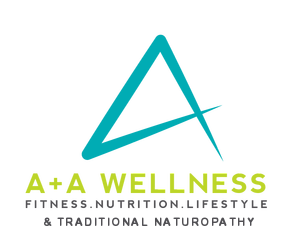
Drinking coffee is often seen as a bad habit, one that has been compared to smoking or alcohol consumption. Most people think they should ditch their coffee habit or at least cut back on it significantly. So is coffee healthy or not? For all you coffee lovers out there who keep a hot cup next to you throughout the day, I have some news you’ll be happy to hear: coffee may no longer be the guilty pleasure it was once seen to be. On the contrary, drinking coffee daily might actually be good for you.
Why is coffee healthy?
Most of us associate coffee with caffeine, a substance that keeps us alert, boosts our energy, and wakes us up in the morning. Aside from these stimulant effects, caffeine also has various protective effects in the body, such as inhibiting the formation of amyloid plaques in the brain.[1] But there is more to coffee than just caffeine. Coffee is also a rich source of healthy polyphenols, which act at powerful antioxidants.[1] These antioxidants, much like those found in blueberries, green tea, and other well-known superfoods, help protect against cardiovascular diseases, neurodegenerative diseases, and more.
Drinking coffee daily may help prevent serious conditions.
There is an abundance of research showing that instead of causing health problems, as you may have thought, drinking coffee may actually protect your body against a wide variety of diseases and health conditions.
- Type 2 diabetes. Several studies have demonstrated that people who drink coffee are less likely to develop type 2 diabetes. People who regularly drink more than four cups of coffee per day have a lower risk for the disease compared to people who drink less than two cups per day.[2] What’s more, changing your coffee intake may be able to shift your risk; people who increased their coffee consumption by one cup per day had an 11 percent lower risk for type 2 diabetes over four years compared to people who made no change. On the other hand, people who decreased their coffee by one cup per day had a 17-percent higher risk.[3] Long-term coffee intake seems to help maintain glucose tolerance and improve insulin functioning.[4,5] It also has anti-inflammatory effects, which helps protect against type 2 diabetes.[4]
- Cognitive decline and Alzheimer’s disease. Coffee seems to protect against cognitive decline, dementia, and Alzheimer’s disease, according to several studies.[6] A study published in the Journal of Alzheimer’s Diseasefound that people who drank three to five cups daily had a decreased risk for dementia by about 65 percent, and a decreased risk for Alzheimer’s disease by about 64 percent.[1] These numbers are quite impressive, suggesting that the common habit of having a few cups of coffee daily may help keep your mind sharp as you age. Read more about how coffee may lower your risk for Alzheimer’s here.
- Parkinson’s disease. Coffee intake is inversely associated with Parkinson’s disease risk, as well. Researchers found that drinking three cups per day may offer the most benefit.[7]
- Cancer. There is now evidence that coffee may be a cancer-fighting tool. Coffee consumption is linked to a reduced risk for many forms of cancer, including melanoma, prostate cancer, colorectal cancer, liver cancer, and possibly others.[8-12] The anti-inflammatory and antioxidant qualities of coffee are likely largely responsible for these effects. Read an extensive discussion on how coffee may fight cancer here.
- Liver disese. Coffee also has beneficial effects on liver health. It has been associated with a lower risk for chronic liver disease, liver cirrhosis, liver cancer, and other liver-related health problems. Filtered coffee, as opposed to unfiltered, seems to be best for liver health.[8]
- Cardiovascular disease. Three to five cups of coffee per day can help lower your risk for cardiovascular disease, including lowering your risk for heart failure and stroke.[13-16]
- Tinnitus. Surprisingly, high coffee intake seems to also protect against tinnitus, a condition of ringing in the ears.[17,18] To read more about the association between coffee and tinnitus, learn more here.
Studies have even shown that people who drink coffee may live longer; higher coffee intake is associated with reduced risk for mortality from all causes.[19] Findings suggest that four cups per day may provide the highest protection against mortality.[13] What kind is best, and how much?
Not all coffee is created equal. Is coffee healthy even when you add heavy cream, sweeteners, or other additives? No. Try to drink your coffee as plain as you can tolerate, with little added sugars or fatty creamers. Studies also suggest that filtered coffee may have added benefit over boiled, steeped (as in French press), or other coffee preparations.[2,8] Filtered coffee is made by placing coffee grounds in a filter, pouring hot water through the grounds, and collecting the liquid as it drips through. Most traditional coffee makers use filters, as do some newer versions like the Keurig coffee maker.
Source: Mother Earth News
ShareJUN
2019



About the Author:
Alex & Ashley Poptodorov are owners of A+A Wellness in ATL, GA. They have over 30 years combined experience with 14 years of running their own fitness facility in Tampa & ATL. They relocated to ATL in 2013 and now offer Fitness, Nutrition, Lifestyle & Traditional Naturopathy programs including Online Coaching and their online Forum called the A+A Wellness 'Inner Circle'.